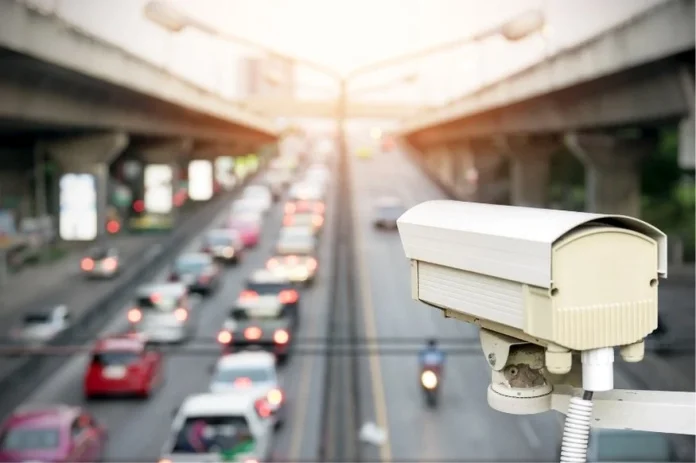Traffic light cameras have become a ubiquitous feature of the American roads cape, silently monitoring intersections and issuing citations to vehicles that enter after the light has turned red. These automated systems are designed to promote safety and generate revenue for municipalities, typically without the direct involvement of a law enforcement officer.
For many drivers, receiving one of these notices in the mail can be a frustrating and confusing experience, leading to a fundamental question: is it possible to contest such a ticket?
Read on to learn whether you can fight a ticket from traffic light cameras.
The Legal Basis for Challenging Camera Tickets
The unequivocal answer to whether you can fight a ticket from traffic light cameras is yes. Fighting a ticket from a traffic light camera isn’t only possible but can often be a successful endeavor for those who understand the legal nuances and procedural defenses available.
The foundation for fighting an automated red-light ticket rests on several legal principles and practical defenses. Jurisdictions that utilize camera systems are required to adhere to strict protocols regarding the installation, calibration, and maintenance of the equipment.
Furthermore, the evidence against the registered vehicle owner must be clear and convincing. Common legal challenges typically question whether the municipality followed its own ordinances to the letter, which can be a surprisingly common point of failure.
For instance, many local laws mandate that warning signs be posted alerting drivers to the use of photo enforcement; the absence of such signage can be grounds for dismissal.
The ticket itself must also comply with statutory requirements, including providing clear images and a method for the recipient to review the alleged violation footage.
However, it’s essential to remember that the process for challenging an automated traffic citation can differ significantly from fighting a ticket issued by a police officer. Understanding these differences is the first step toward mounting an effective defense.
While an officer can testify to their observations, a camera system relies on a chain of evidence that can be susceptible to errors, calibration issues, and procedural missteps.
In this case, seeking guidance from a legal professional, such as a Sarasota DOT traffic cameras lawyer or wherever you may be, can provide crucial insights into the specific laws and potential weaknesses in the case presented by the issuing jurisdiction.
Common and Effective Defense Strategies
When preparing to contest a red-light camera citation, you can employ several defense. The success of any given strategy depends heavily on the specific circumstances and the local laws. Below are some common and effective defense strategies:
1. Identity of the Driver
In many states, red-light camera tickets are issued to the registered owner of the vehicle, not necessarily the driver at the time of the infraction. If you’re the owner and weren’t driving, you can often submit an affidavit identifying the actual driver.
If the driver can’t be identified, this can sometimes lead to a dismissal, as the burden of proof shifts away from the registered owner.
2. Insufficient or Unclear Evidence
The photographic and video evidence must clearly show your vehicle’s license plate and the violation occurring. Blurry images, a license plate that’s obstructed, or video that fails to conclusively prove your vehicle entered the intersection after the light was red can all be used to challenge the ticket.
The evidence must demonstrate beyond a reasonable doubt that your vehicle proceeded into the intersection during the red phase, not during a legal right turn on red or while the light was still yellow.
3. Malfunctioning Equipment or Improper Calibration
Traffic light cameras and the associated sensors require regular calibration and maintenance. Requesting the maintenance and calibration records for the specific camera in question can reveal gaps in service or failures to adhere to the manufacturer’s specifications. If the jurisdiction can’t produce these records, the evidence may be deemed unreliable.
4. Emergency Avoidance Maneuvers
A less common but potentially valid defense involves situations where you as the driver entered the intersection on a red light to avoid a serious accident. For example, if another vehicle suddenly swerved into the lane, running the red light may have been the only safe course of action. Supporting evidence, such as a dashcam video, would be instrumental in proving such a claim.
5. Right-of-Yield for Right Turns
Many traffic violations are issued for right turns on red where you as the driver allegedly failed to come to a complete stop. The evidence must show that the turn was made without stopping and that it was unsafe to do so.
If the video shows a “rolling stop” where you clearly yielded to all pedestrians and cross traffic, an argument can be made that the maneuver was safe and the violation is merely technical.
Procedural Hurdles and the Importance of Response
A critical aspect of these citations is the strict adherence to response deadlines. Ignoring a red-light camera ticket can lead to severe consequences, including the issuance of a default judgment, the addition of late fees, and the suspension of the vehicle’s registration.
It’s imperative to respond to the notice by the specified date, even if the intention is to contest it. The process typically involves requesting a hearing, which may be conducted through mail, online, or in person. During this hearing, the presented evidence can be challenged, and defenses can be formally raised.
The Controversy and Varying Jurisdictional Laws
The use of red-light cameras isn’t without significant controversy. Opponents argue that the primary motivation for many municipalities is revenue generation rather than safety, often pointing to instances where yellow light durations have been artificially shortened to increase the number of violations. The laws governing these devices can vary dramatically from state to state.
Some states have outright banned their use, while others permit them but impose strict regulations on how fines are collected and how revenue is allocated. In several jurisdictions, red-light camera tickets are treated as civil violations rather than moving violations, meaning they may not add points to your driver’s license but can still impact your wallet and driving record through other means.
Conclusion
Ultimately, a traffic light camera ticket is an allegation generated by a machine, and like any evidence, it’s subject to scrutiny. By keeping the information mentioned above in mind, you can effectively challenge these automated citations. A successful defense not only saves money on fines and avoids potential increases in insurance premiums but also holds governing bodies accountable for the proper and lawful administration of their automated enforcement programs.





